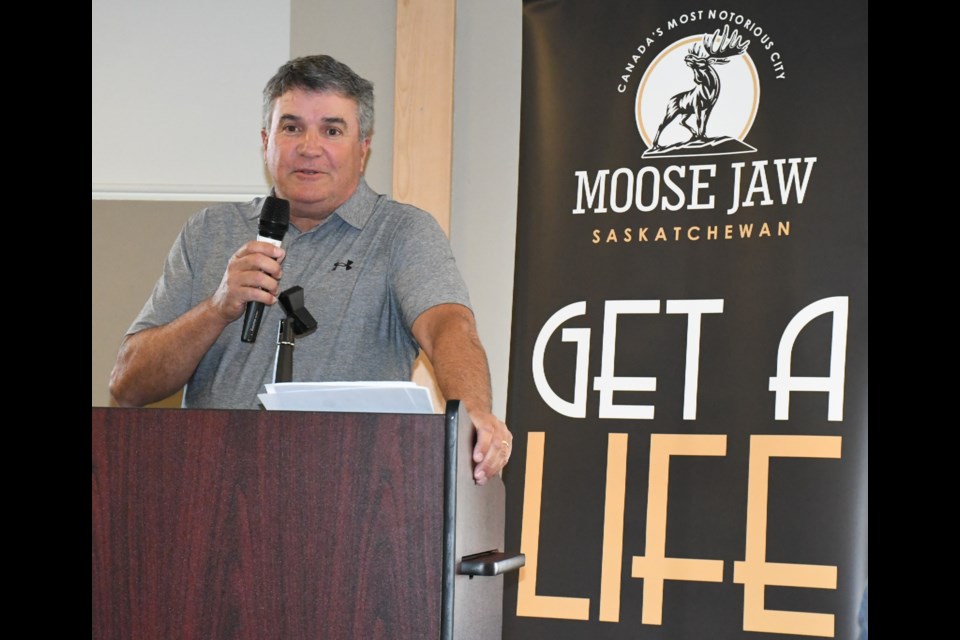The Moose Jaw Warriors and city hall have signed a new five-year lease agreement for the Events Centre, with the club contributing two-per-cent more from ticket sales but paying nearly $100,000 less in tenant fees.
Both organizations announced at the Multiplex on March 25 the new building-use agreement, which is retroactive to Sept. 1, 2023, and runs until Aug. 31, 2028. The previous agreement expired on Aug. 31, 2021, with both parties mutually agreeing to extend it until this past August.
As part of the agreement, the WHL team will pay the City of Moose Jaw 12 per cent of net ticket sales for games during the regular season and playoffs, which is an increase from 10 per cent.
Furthermore, the club will pay $60,000 annually — or $5,000 monthly or $1,475 per game — for its building rental fee, which is a .
The club will also pay the city $200,000 annually in licensing and advertising fees, .
Therefore, the total contributions the club could make to the community and building is roughly $400,000.
Meanwhile, the city retains the food and beverage rights within the building, but based on the number of tickets scanned per game, it will pay the Warriors up to $1,000 for regular-season contests and up to $2,000 for playoff contests from those profits.
Among other negotiated items in the agreement are new terms for naming rights, ticket sales, scheduling of games and practices, complimentary tickets and more.
Bob Dougall, the Warriors’ president and governor, thanked city manager Maryse Carmichael for negotiating the new agreement, which he thought was an easier process with her than with the previous administration.
Meanwhile, Dougall said it has been challenging for the club to find the right financial balance between ensuring the continuation of daily building operations and handling long-term fiscal hurdles.
The club has reported losses of roughly $380,000 in the past two years, and while this new agreement is better than past ones, it isn’t enough to address the Warriors’ financial standing, he told media. Therefore, the team has plenty of work to do to sell tickets and advertising so it can return to a profitable position.
However, the city has made the club’s financial life slightly easier by agreeing to cover the payroll costs for security and ticket takers, Dougall added. In return, the team will pay two per cent more on ticketing sales and less on advertising revenues.
Carmichael was excited that both parties had signed a new agreement since they had been without an official one for several years, while it was one of her top three priorities when she started last May. During negotiations, she said she focused on “the greater good” and ensured the entities and residents had great WHL hockey in Moose Jaw for years to come.
To determine the appropriate financial agreement, the city manager spoke with the WHL commissioner and “specialists” in the event business and hockey in Western Canada to understand where the Warriors stood compared to other clubs with building agreements.
Her investigations determined the city could take on the financial responsibility for security and ticket-taking, while the municipality could return some fees in advertising and handle other logistics.
Overall, the city is supporting the club financially and giving it “somewhat of a relief,” although it will depend on how much advertising the hockey organization generates for the building, Carmichael said.
“You can see it as helping the Warriors, or just 小蓝视频 fair as well. … there’s not that many community-owned teams that have the same combo as us — a community-owned team in a city venue,” she added.
“We looked at that, and it was important to be fair with them, as well as looking at the specificity of that relationship between the Warriors and the City of Moose Jaw.”
The WHL playoffs start Friday, March 29 for the Warriors.




